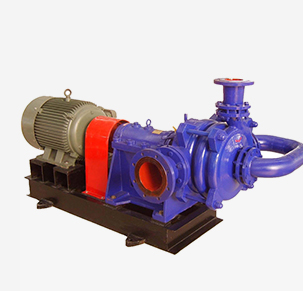English
- Afrikaans
- Albanian
- Amharic
- Arabic
- Armenian
- Azerbaijani
- Basque
- Belarusian
- Bengali
- Bosnian
- Bulgarian
- Catalan
- Cebuano
- Corsican
- Croatian
- Czech
- Danish
- Dutch
- English
- Esperanto
- Estonian
- Finnish
- French
- Frisian
- Galician
- Georgian
- German
- Greek
- Gujarati
- Haitian Creole
- hausa
- hawaiian
- Hebrew
- Hindi
- Miao
- Hungarian
- Icelandic
- igbo
- Indonesian
- irish
- Italian
- Japanese
- Javanese
- Kannada
- kazakh
- Khmer
- Rwandese
- Korean
- Kurdish
- Kyrgyz
- Lao
- Latin
- Latvian
- Lithuanian
- Luxembourgish
- Macedonian
- Malgashi
- Malay
- Malayalam
- Maltese
- Maori
- Marathi
- Mongolian
- Myanmar
- Nepali
- Norwegian
- Norwegian
- Occitan
- Pashto
- Persian
- Polish
- Portuguese
- Punjabi
- Romanian
- Russian
- Samoan
- Scottish Gaelic
- Serbian
- Sesotho
- Shona
- Sindhi
- Sinhala
- Slovak
- Slovenian
- Somali
- Spanish
- Sundanese
- Swahili
- Swedish
- Tagalog
- Tajik
- Tamil
- Tatar
- Telugu
- Thai
- Turkish
- Turkmen
- Ukrainian
- Urdu
- Uighur
- Uzbek
- Vietnamese
- Welsh
- Bantu
- Yiddish
- Yoruba
- Zulu
Telephone: +86 13120555503
Email: frank@cypump.com
Sep . 23, 2024 06:44 Back to list
septic tank water pump
Understanding the Importance of Septic Tank Water Pumps
Septic systems play a crucial role in managing wastewater for homes not connected to a municipal sewer system. Central to the functionality of these systems is the septic tank, which processes waste and separates solids from liquids. However, in some cases, relying solely on gravity to move wastewater may not suffice, especially in areas with challenging topography. This is where septic tank water pumps come into play.
A septic tank water pump is designed to transport effluent (the liquid waste) from the septic tank to the drain field or leach field. This process is vital for ensuring that wastewater is distributed evenly across the soil, allowing for proper filtration and absorption. Without an effective water pump, the septic system could fail, leading to backups, unpleasant odors, and environmental contamination.
There are generally two types of pumps used in septic systems effluent pumps and grinder pumps. Effluent pumps are utilized for moving the liquid waste out of the septic tank and into the drain field. These pumps are robust and can handle small solids, making them suitable for typical wastewater applications. On the other hand, grinder pumps serve a more specialized purpose. They are used when wastewater needs to be moved uphill or over a distance where gravity flow is inadequate. Grinder pumps grind solids into a fine slurry, allowing for easier transport.
septic tank water pump

Choosing the right pump for your septic system is essential. Factors to consider include the distance the wastewater needs to be pumped, the elevation changes during transport, and the overall design of the septic system. It’s recommended to consult with a septic system professional to make the best selection based on individual needs.
Regular maintenance of septic tank water pumps is equally important. This includes routine inspections, cleaning, and ensuring that the pump is functioning correctly. Neglecting maintenance can lead to pump failure, system backups, and costly repairs. Property owners should also be conscious of what goes into their septic system. Avoid flushing non-biodegradable materials, excessive chemicals, and other items that might harm the function of the pump and overall system.
In addition to ensuring that the septic tank water pump is in good working order, homeowners should also be aware of the signs indicating a pump issue. Common symptoms of pump failure include slow drains, unpleasant odors from the yard, and unexpected pooling of water. If any of these signs appear, it’s crucial to act quickly and seek professional assistance to avert severe consequences.
In conclusion, septic tank water pumps are a vital component of many wastewater management systems, especially in areas where gravity flow is insufficient. By selecting the appropriate pump, conducting regular maintenance, and being aware of warning signs, homeowners can ensure their septic systems function effectively. This not only promotes a sanitary living environment but also protects the property and local ecosystem from potential contamination. Proper management of septic systems, therefore, is essential for both individual homeowners and the broader community.
-
Horizontal Split Case Pump with GPT-4 Turbo | High Efficiency
NewsAug.01,2025
-
ISG Series Pipeline Pump - Chi Yuan Pumps | High Efficiency, Durable Design
NewsAug.01,2025
-
Advanced Flue Gas Desulfurization Pump with GPT-4 Turbo | Durable & Efficient
NewsJul.31,2025
-
ISG Series Vertical Pipeline Pump - Chi Yuan Pumps | Advanced Hydraulic Design&Durable Construction
NewsJul.31,2025
-
ISG Series Vertical Pipeline Pump - Chi Yuan Pumps | Energy Efficient & Low Noise
NewsJul.31,2025
-
pipeline pump - Chi Yuan Pumps Co., LTD.|High Efficiency&Low Noise
NewsJul.31,2025










